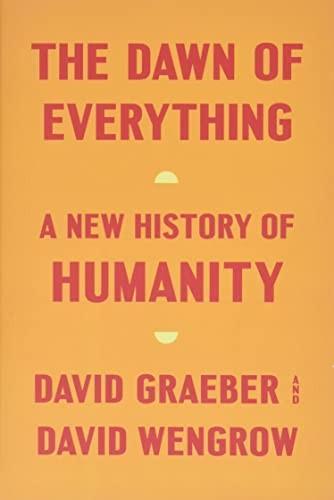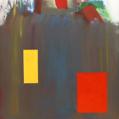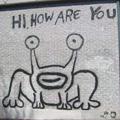gesang reviewed The Dawn of Everything by David Wengrow
Another propaganda
1 star
There are several flaws in this book. We already know this. The theory Graeber and Wengrow put forward has been in vogue for nearly half a century. It's not new and it even is cliched. No one really thinks the analytic constructs of the theories of the State correspond to actual historical truth, not even the original theorizers thought like that. Its influence is another thing. Speaking of influence, the authors again try to conjure up a false categorical connection between how a certain concept emerged, and whether this concept is really in the object that those made heavy use of it. This, coupled with a complete overlooking of medieval history and scholastic developments in the field of jurisprudence, led them to devise a totalizing narrative that while reducing the principle underlying the status quo to contingency, and simultaneously totalize the so-called freedom of the native Americans (ironically just like …
There are several flaws in this book. We already know this. The theory Graeber and Wengrow put forward has been in vogue for nearly half a century. It's not new and it even is cliched. No one really thinks the analytic constructs of the theories of the State correspond to actual historical truth, not even the original theorizers thought like that. Its influence is another thing. Speaking of influence, the authors again try to conjure up a false categorical connection between how a certain concept emerged, and whether this concept is really in the object that those made heavy use of it. This, coupled with a complete overlooking of medieval history and scholastic developments in the field of jurisprudence, led them to devise a totalizing narrative that while reducing the principle underlying the status quo to contingency, and simultaneously totalize the so-called freedom of the native Americans (ironically just like Rousseau, and even more like Tacitus) as if it itself is not contingent. Everyone with a knowledge of the development and evolution of the concept of state will find the narrative given extremely confused and stupid. History is contingent, but nearly everything is historically conditioned, and this contingency is not something that can be gotten rid of instantly and on a whim. There are too many a-historical and pseudo-historical arguments in the guise of history (similar to the current status of historical studies in humanities). In fact Greber and Wengrow go full totalizing mode and blatantly make noramtive value claims when it comes to the views that they themselves deem right, without actually arguing for that, since they'll find that when they really go on and try to do that, they'll be repeating what the thinkers of the 17th and 18th century said. Furthermore, this book, similar to all other popular, propagandizing, rhetoric-driven book, gives a false impression that history is a simple thing which is more about facts rather than interpretations. Everyone with a minimum real education in any of the humanities will be able to see clearly that what are presented here are not and should not be the final words, but this is not and will not be the case for the general public, who are the majority of the readers of the book. I'm not against the "against totalising state" narrative, but I'm against intellectual confusion and rhetoric devoid of any meaningful content. Pointing out that a community is "imaginary" may give those who fall into the rhetoric a false impression that there must be something real that holds a community together, but they won't stop and try to think about what then is this real thing that holds a community together - it must not be blood I guess. Similarly, the book's narrative never venture toward its almost necessary intellectual conclusion, or rather, it tries to give a conclusion that not at all follows from the archaeological studies etc. presented in it as evidences to something that is vague and in itself imaginary.



